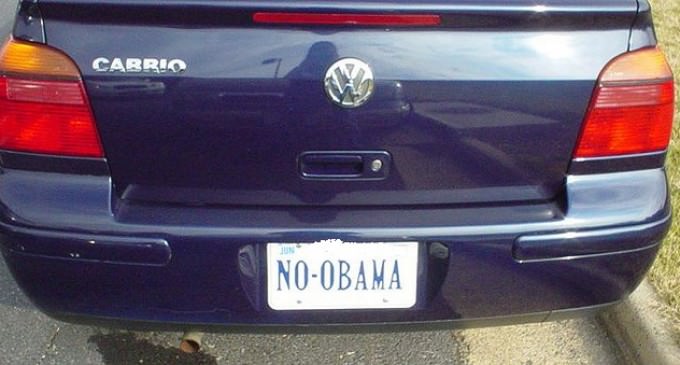
A year after DHS Secretary Jeh Johnson canceled a plan by the Immigration and Customs Enforcement agency to create a national license-plate tracking system due to a large outcry from civil liberties advocates, DHS is seeking to reinitiate its creation.
The Department of Homeland Security now feels that they can properly address concerns raised by privacy advocate groups about the warrantless tracking of Americans through creation of functionality that permits law enforcement to access an existing database containing billions of records detailing citizen whereabouts.
In a privacy impact assessment issued Thursday, the DHS says that it is not seeking to build a national database or contribute data to an existing system.
Instead, it is seeking bids from companies that already gather the data to say how much they would charge to grant access to law enforcement officers at Immigration and Customs Enforcement, a DHS agency. Officials said they also want to impose limits on ICE personnel’s access to and use of the data.
“These restrictions will provide essential privacy and civil liberty protections, while enhancing our agents’ and officers’ ability to locate and apprehend suspects who could pose a threat to national security and public safety,” DHS spokeswoman Marsha Catron said in a statement. The solicitation was posted publicly Thursday.
Privacy advocates who reviewed a copy of the privacy impact assessment said it fell short.
“If this goes forward, DHS will have warrantless access to location information going back at least five years about virtually every adult driver in the U.S., and sometimes to their image as well,” said Gregory T. Nojeim, senior counsel for the Center for Democracy & Technology.
Commercial license-plate tracking systems already are used by the FBI and the Drug Enforcement Administration, as well as some local and state law enforcement agencies. Law enforcement groups say the fears of misuse are overblown. But news of the DHS solicitation triggered a public firestorm last year, leading Homeland Security Secretary Jeh Johnson to cancel it and order a review of the privacy concerns raised by advocates and lawmakers.
Over the following months, ICE and DHS privacy officials developed policies aimed at increasing “the public’s trust in our ability to use the data responsibly,” according to a senior DHS privacy officer. The DHS is the first federal agency, officials said, to issue a privacy assessment on such a solicitation.
Commercial license-plate-tracking systems can include a variety of data. Images of plate numbers are generally captured by high-speed cameras that are mounted on vehicles or in fixed locations. Some systems also capture images of the drivers and passengers.
The largest commercial database is owned by Vigilant Solutions, which as of last fall had more than 2.5 billion records. Its database grows by 2.7 million records a day.
DHS officials say Vigilant’s database, to which some field offices have had access on a subscription basis, has proved valuable in solving years-old cases. Privacy advocates, however, are concerned about the potential for abuse and note that commercial data banks generally do not have limits on how long they retain data.

Liberal establishment at work again
LIBERAL COMMUNISTIC TENDENCIES AT WORK.
This should ONLY be used sex offenders and criminals with a record.
this should never be used on anyone for any reason, can you say 1930’s Germany??????
NO MUSLIM BROTHERHOOD MEMBER SHOULD EVER SERVE IN THE USA GOVERNMENT OFFICE.
Sure…la la land is exclusively for you and yours
You all are idiots. Round you all up and use you for oil…oh wait Romney said that
ONLY GOOD ONE ,,,IS A DEAD ONE,,,,,,
Another liberal, go hum
BIG BROTHER BE WATCHIN YO $#%&!@*!